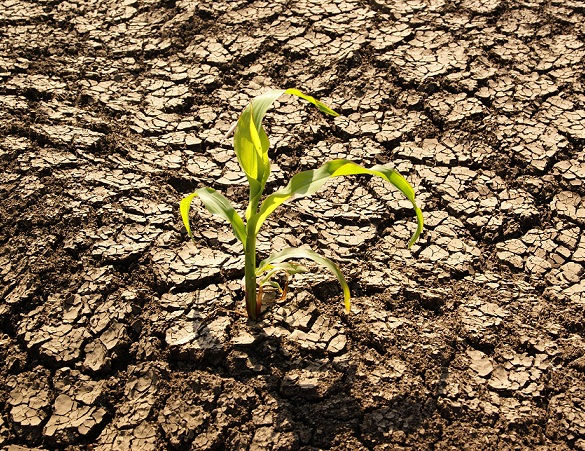New finding shows how jet streams affect up to a quarter of global food production

Scientists revealed a new finding that could improve seasonal predictions of agricultural production at a global scale in a study by Oxford University.
This new study demonstrates how heatwaves in major food producing regions are influenced by patterns in the jet stream. The study specifically looked at North America, Western Europe and Asia.
Up until this point, this was an "unexplored vulnerability in the food system", stated lead author Dr Kai Kornhuber.
What is different about this study is that it shows that heatwave events are actually within a global structure. Rather than being random events resulting from climate change, there is a "chaotic circulation" in the atmosphere. This global structure causes multiple regions to have devastating heatwaves at the same time.
Research showed that risk increases 20-fold in regions where these specific wind patterns are in place. Understanding more about these jet streams could also inform risk assessments of harvest losses across various regions.
Implications of the study
Simultaneous heatwaves significantly impact crop production, it said. So, to find how to decrease risk of drought, climate scientists must understand these jet streams.
"Co-occurring heatwaves will become more severe in the coming decades if greenhouse gases are not mitigated. In an interconnected world, this can lead to food price spikes and have impacts on food availability even in remote regions not directly affected by heatwaves," Dr Kornhuber said.
Heat and drought to occurring in the same place often only affects some areas. North America, Western Europe and the Caspian Sea are particularly vulnerable. However, the global scale of the problem could impact non-affected areas in a big way, it stated.
It also added that crop losses over the next years will have worldwide consquences. Such harvest failures resulting from jet patterns could have "far-reaching societal consequences, including social unrest". This is according to Oxford's release on the study.
Dr Dim Coumou, co-author from the Institute for Environmental Studies at VU Amsterdam explained a bit more about the implications of the findings.
"Normally low harvests in one region are expected to be balanced out by good harvests elsewhere but these waves can cause reduced harvests in several important breadbaskets simultaneously, creating risks for global food production."
Researchers warn that if climate models do not take into account wave patterns, food security experts risk making a mistake in calculating how heat waves could impact the climate.
Scientists concluded that it is critical to understand what drives this jet stream behavior.












































